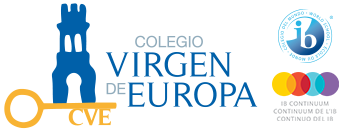TRAINING PROGRAM IN EXECUTIVE FUNCTIONS AT 4 AND 5 YEARS OLD
We believe that generating a specific plan in the training of executive functions can be very enriching and a key element in providing students with the best tools to learn to function properly in the future. When we talk about executive functions, we refer to the set of complex cognitive processes that allow us to plan, guide and control our behaviour from the coordination of our actions, thoughts, and emotions, in this way we can respond to complex tasks and resolve conflicts that may arise in our day to day. The main executive functions to be addressed in the program are inhibitory control, working memory, planning, and cognitive flexibility.
PROGRAM ACTIVITIES:
Opening activities: These are activities aimed at temporal and spatial orientation and the organization of the school day.
Activities of transition and to attract attention: They are carried out after a busy activity, when we want to move on to another in which greater concentration is required. They serve to redirect attention to another task and lower the level of excitement.
Activities to create a group: They are designed to generate a feeling of belonging to the group.
Process training activities: They are aimed at training executive function directly (cognitive flexibility tasks, working memory, attention, planning and inhibitory control)
Training activities in strategies: They stimulate the acquisition and internalization of strategies for the improvement of executive functioning and reinforcement in academic activities.
Pretended game: Children learn through play; this is the best way for them to internalize the concepts we want to teach them. Through observation of the game, we are given clues about their development, their level of maturity, their motivations and their acquisition of knowledge. The intended game consists of planning a period of play according to a theme (family, professions …), it is carried out in a group with the aim of learning from the experiences shared with their peers. Throughout the course, different topics related to the concepts they are learning in class are presented.


















